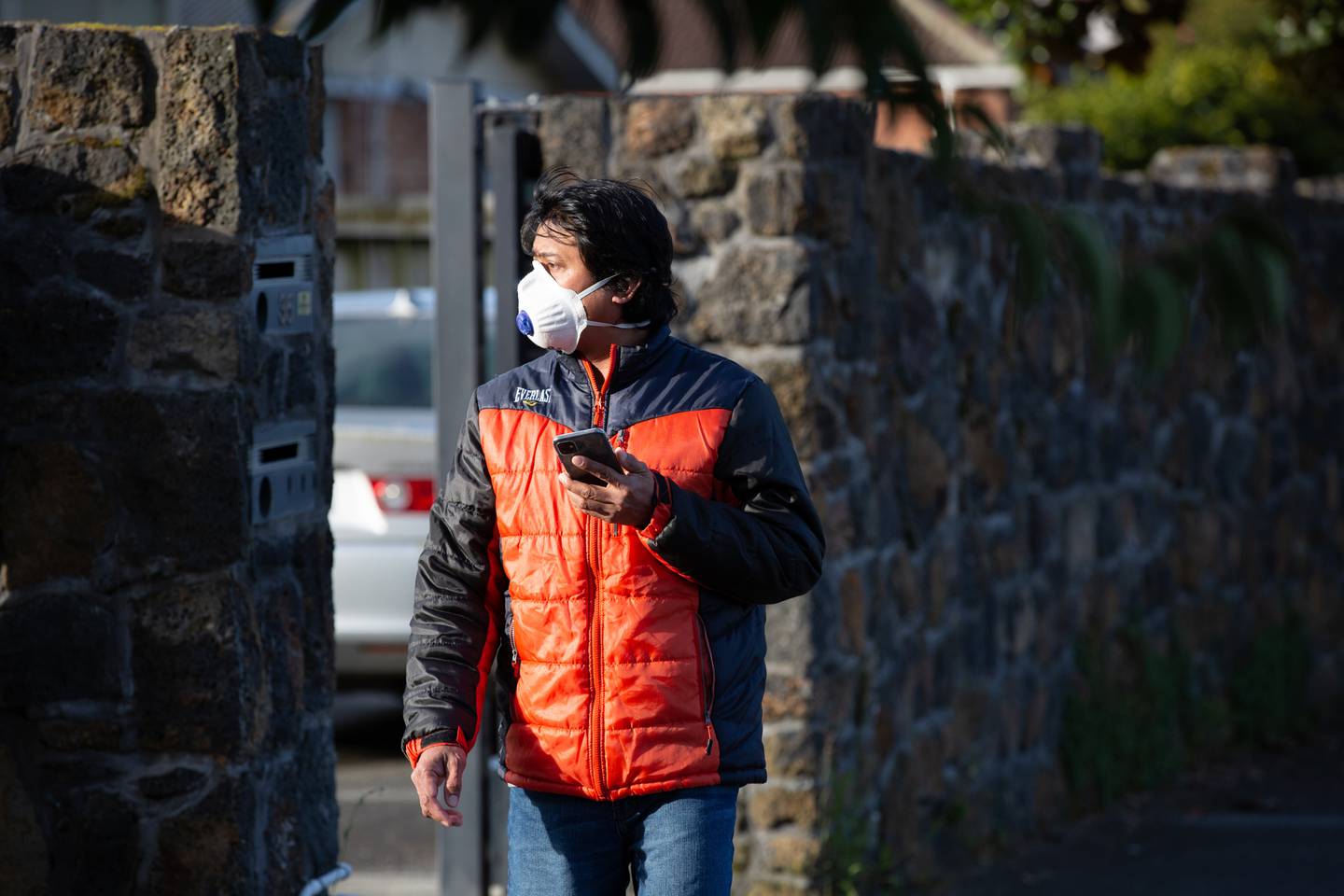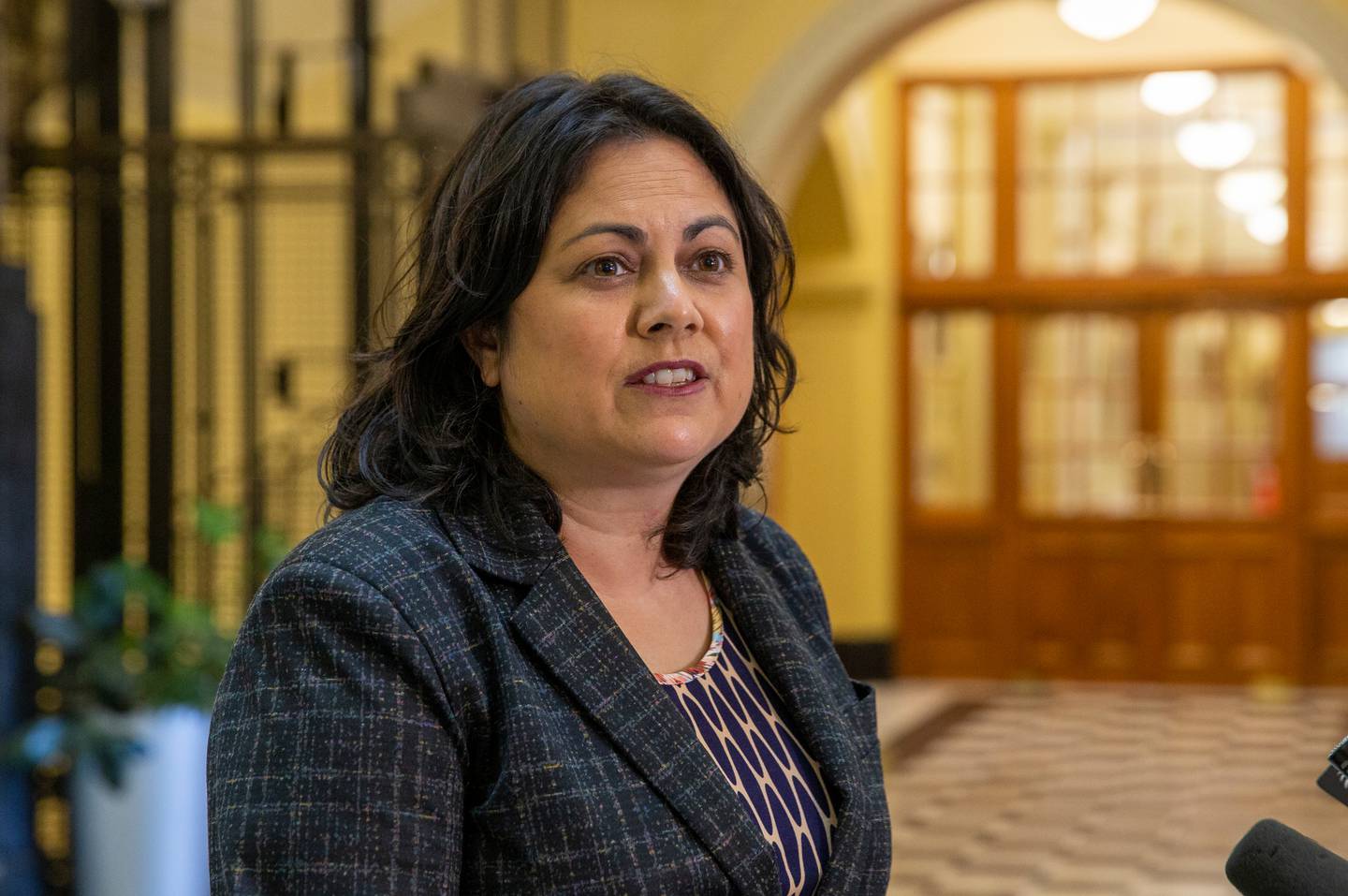
The survey shows a significant drop off in the willingness of people to trust the Prime Minister as the main source of truth about the pandemic.
People remain confident in their ability to identify misinformation, and twice as many people use mainstream media for Covid information as use social media.
At least every eight weeks, the Department of Prime Minister and Cabinet receives a survey of how New Zealanders feel about Covid-19. It looks at how much people are willing to comply with health rules and whether they trust health messaging on the virus, along with broader health messaging.
The May survey has just been released and shows significant declines in a willingness to comply with Covid rules, although compliance levels were quite high to begin with. Between March and May of this year, the number of people willing to use a face mask when required dropped to 67 percent, down 11 points.
The number of people willing to isolate if feeling sick or unwell fell 12 points to 47 percent. The number of people who would get a rapid antigen test (RAT) if required fell to 44 percent, down three points.
Only 35 percent of people want to wash their hands with soap for at least 20 seconds, down six points, and only 36 percent of people cough or sneeze into their elbows.
Just 27 percent of people will officially record the result of a Covid-19 RAT, including if they get a negative result.
The biggest worry for New Zealanders is no longer Covid-19, but the cost of living, which 77 percent of respondents said was one of their biggest concerns - Covid came second with 44 percent.

In September 2021, when New Zealand was in lockdown, willingness to use facemasks soared 31 points to 78 percent. Willingness to get a Covid-19 test rose to 48 percent, up 17 points. Before that, willingness to use facemasks was lower than it is now - partly explained by the different rules at the time.
Covid-19 Response Minister Dr Ayesha Verrall said public health messaging, which this research was designed to inform, had "helped stop the spread of the virus during the initial outbreak, and slowed the spread of Delta, when it arrived, enabling New Zealand to be one of the few countries that had a highly vaccinated population before Delta was widespread in the community".
She said the Covid response was informed by expert advice, "including research into public sentiment".
"Social licence is one of the factors we consider when deciding on Covid-19 Protection Framework settings.
"This research is also used to identify gaps in the provision of public information around Covid-19 and ensure those gaps are addressed," she said.
The survey also asked whose opinion people sought out and listened to on Covid-19.

Commentators Dr Siouxsie Wiles and Dr Michael Baker scored 18 percent and 17 percent respectively.
Overall, New Zealanders' feelings about the pandemic have settled. In November, nearly 35 percent felt sad and just under 25 percent felt angry about the pandemic.
Now, just 15 percent feel sad, and 10 percent feel angry. They're outnumbered by 17 percent who feel joyful.
Far more Kiwis - 45 percent - feel "neutral" about the pandemic. The number who feel "neutral" has fluctuated between 40 and 45 percent since May last year.
One area that's had a significant reset in sentiment is people's feelings about whether the country is going in the right or wrong direction with its management of the pandemic.
In September 2021, 70 percent of people felt New Zealand was on the right track. This plunged to 41 percent in November before rising to 53 percent in December.
The May survey had "right direction" at 47 percent, up three points on March.
Twenty-six percent of people think the country is heading in the wrong direction, down 30 percent from March, but up from the low of 15 percent registered in July last year.
An overwhelming majority of New Zealanders, 78 percent, said they felt they could identify Covid-19 misinformation.
Exactly half of New Zealanders got their Covid information from the mainstream media.
Just 23 percent used social media and 20 percent searched for Covid information on the internet.
The Ministry of Health and Covid-19 websites were sources of information for 35 and 34 percent of people respectively.
When asked what their main barrier to isolating was, 61 percent of people said they could not take time off work - this was unchanged from March.
Exactly half of those surveyed said they could not "be bothered", up 2 points.
One significant change was the number of people who could no longer understand why they needed to isolate. This increased 13 points to 35 percent.
The survey ran from May 16 to 26 and interviewed a representative sample of 818 New Zealanders. It has a margin of error of 3.4 percent.












